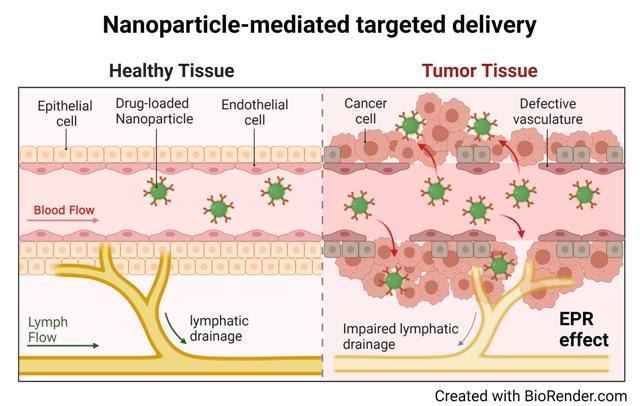Experimental Cancer Therapy Nanoparticle-based Drug delivery
Chemotherapy is one of the main modalities in the treatment of cancer, but with the cost of unspecific killing of normal cells and considerable systemic toxicity. Encapsulation of the drug(s) in biodegradable nanoparticles (NPs) has the potential to reduce the side effects and simultaneously keep a high dose of the active drug in the tumor by utilizing the enhanced permeability and retention (EPR) effect (passive targeting). Additionally, active tumor-targeting can be achieved using tumor-specific ligands on the NP surface or using ‘smart NPs’ to target tumor-specific physiological conditions such as high ROS/low pH, or activation by illumination. We are collaborating with different partners who produce the NPs, while we investigate the toxicity, the biodistribution and the treatment efficacy of the compounds.
Several subprojects have been performed in collaboration with Prof emeritus Kirsten Sandvig and senior scientist Tore Geir Iversen, Department of Molecular Cell Biology, Institute for Cancer Research.
Other national collaborators: SINTEF, NaDeNo Nanoscience, PCI Biotech, Node Pharma
International collaborators: the DIRNANO ITN network
The project has been funded by:
The Research Council of Norway (NANOCAN to Sandvig, 2016-19; EEA Grants – 2021-2024; IPN-projects (2023-25)), the Cancer Society (Sanvig 2019-21), EU H2020 ITN (2022-24).


